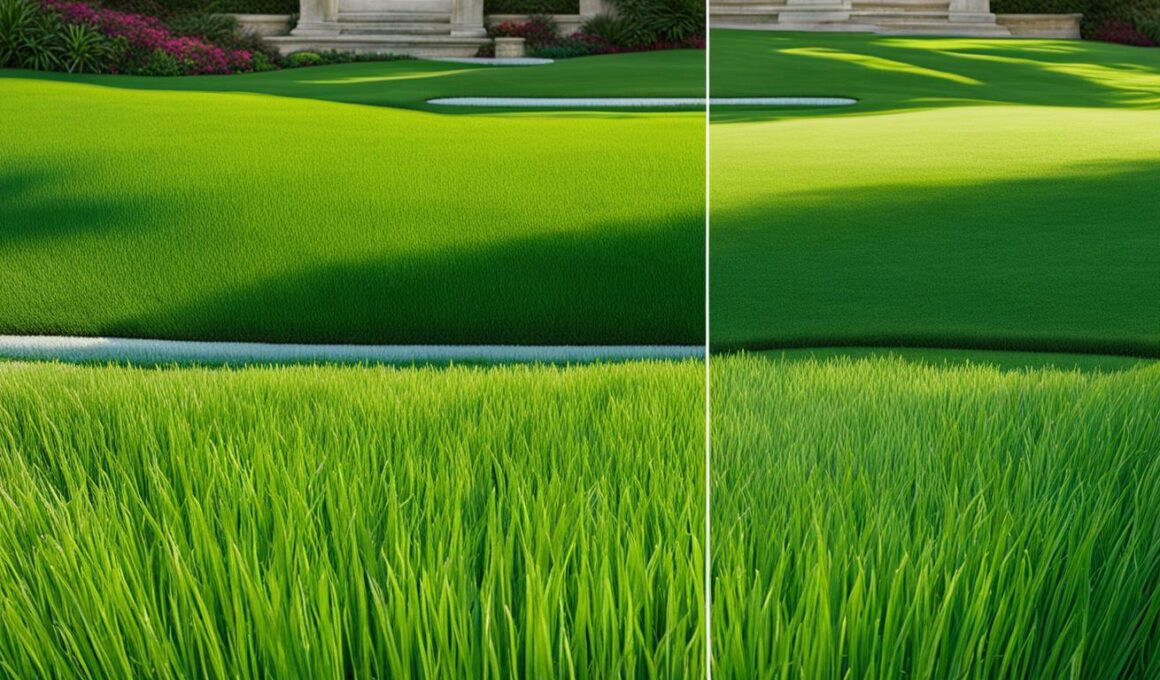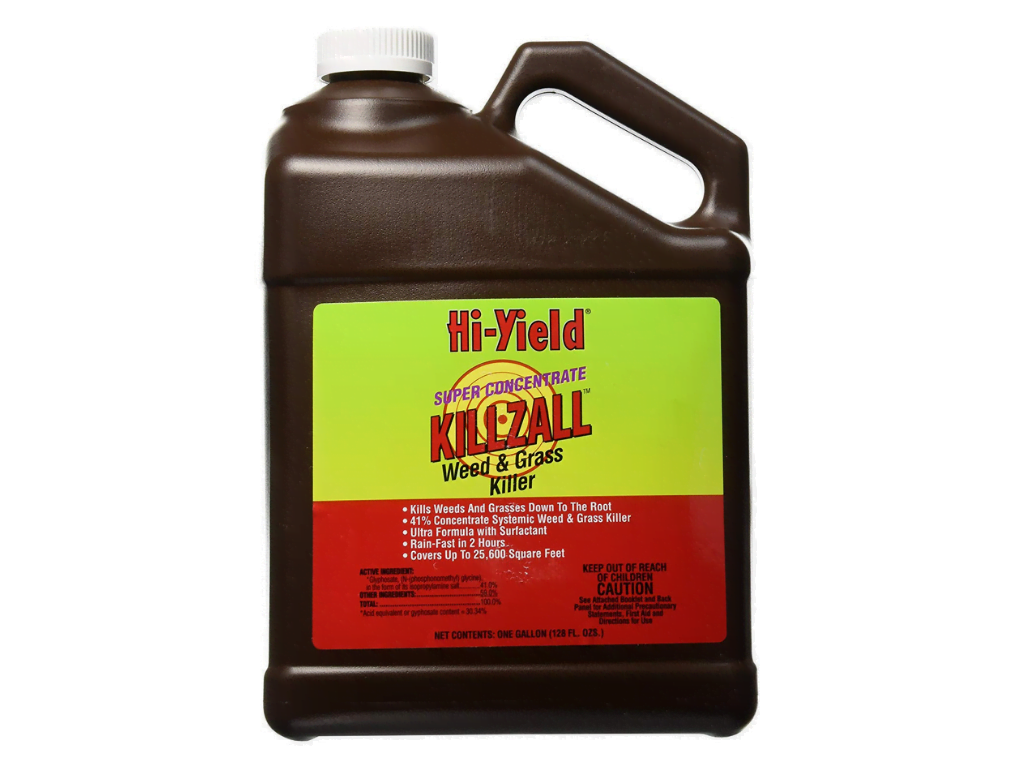When it comes to selecting the best grass for your lawn, the choice between Fescue grass and Bermuda grass is an important one. Understanding the differences between these two grass types and considering various factors such as climate adaptability, water requirements, sunlight needs, maintenance, and traffic tolerance can help you make the right decision.
Choosing the right grass type for your lawn is crucial in ensuring its optimal growth and appearance. Both Fescue grass and Bermuda grass have their unique characteristics and suitability for different environments. By evaluating these factors, you can determine which grass type is the best choice for your lawn.
In the following sections, we will delve into the specific attributes of each grass type, understand their climate preferences, water and sunlight requirements, maintenance needs, and traffic tolerance. Armed with this knowledge, you will be able to confidently choose the grass type that aligns with your lawn’s needs and your desired level of care.
Understanding Bermuda Grass
Bermuda grass, scientifically known as Cynodon dactylon, is a warm-season grass that thrives in hot and humid climates. This versatile grass is renowned for its ability to withstand high temperatures and drought, making it an ideal choice for areas with scorching summers. The dense growth habit of Bermuda grass creates a lush, carpet-like appearance, providing a beautiful and inviting lawn for your outdoor space.
Bermuda grass spreads vigorously through stolons and rhizomes, allowing it to quickly recover from damage or wear. Its resilient nature makes it a popular option for lawns, sports fields, and golf courses that experience heavy foot traffic. Whether you have pets, children, or enjoy hosting outdoor activities, Bermuda grass can handle the demands of an active lifestyle.
One of the remarkable characteristics of Bermuda grass is its ability to adapt and thrive in a variety of soil types and conditions. It is known for its excellent salt tolerance, making it suitable for coastal areas. With proper care and maintenance, Bermuda grass can create a vibrant and resilient lawn that enhances the visual appeal of your property.
To give your lawn a lush and green appearance, Bermuda grass requires regular watering, preferably with deep and infrequent irrigation to encourage strong root growth. It is important to note that while Bermuda grass has good drought tolerance, it still needs adequate water to maintain its vitality during prolonged dry spells.
Understanding Fescue Grass
In your pursuit of the perfect lawn, it’s essential to familiarize yourself with the characteristics and benefits of different grass types. One popular option is Fescue grass, scientifically known as Festuca arundinacea. This cool-season grass thrives in areas with moderate temperatures and sufficient rainfall, making it an excellent choice for various regions in the United States.
Fescue grass stands apart from other grass varieties with its coarser texture and distinct bunching growth habit. Its durability and shade tolerance make it a preferred choice for lawns, parks, and areas with partial shade. Additionally, Fescue grass has the unique ability to maintain its vibrant green color during cooler seasons, ensuring your lawn remains visually appealing throughout the year.
Difference Between Fescue and Bermuda Grass
The differences between Fescue grass and Bermuda grass extend beyond their growth habits and preferred climates. When choosing the right grass type for your lawn, it is essential to consider their climate adaptability, water requirements, sunlight needs, maintenance, and traffic tolerance.
Climate Adaptability
Bermuda grass is more suitable for warm environments, as it thrives in high temperatures and exhibits excellent drought tolerance. On the other hand, Fescue grass is better suited for cooler regions, where moderate temperatures and sufficient rainfall prevail.
Water Requirements
Bermuda grass generally requires less water compared to Fescue grass. Its ability to withstand drought makes it a great choice for areas with limited water availability. Fescue grass, on the other hand, needs more frequent watering and is not as drought-tolerant as Bermuda grass.
Sunlight Needs
While Bermuda grass thrives in full sun, Fescue grass performs better in partially shady environments. If your lawn has areas with limited sunlight, Fescue grass may be a better option.
Maintenance
Maintenance requirements differ between the two grass types. Bermuda grass has a faster growth rate, requiring more frequent mowing and trimming. Fescue grass, on the other hand, has a slower growth rate and may not need as much maintenance.
Traffic Tolerance
When it comes to foot traffic, Bermuda grass is more tolerant and resilient. It can withstand heavy use, making it an excellent choice for lawns that will experience frequent activity. Fescue grass, although durable, is less tolerant of heavy foot traffic and may require more precautions to maintain its appearance.
Considering these differences, it’s crucial to choose the grass type that aligns with your specific needs and the conditions of your lawn. Remember to assess the climate, water availability, sunlight exposure, maintenance preferences, and the intended use of your lawn before making a decision. By understanding these factors, you can ensure the best choice for your lawn.
Choosing the Right Grass Type for Your Lawn
When it comes to choosing the right grass type for your lawn, several factors should be taken into consideration. Assessing your local climate, determining the amount of sunlight your lawn receives, and considering the water availability in your area are all important factors to consider. Additionally, evaluating your maintenance preferences and thinking about the intended use of your lawn will help you make an informed decision.
Start by analyzing your local climate. Different grass types have varying levels of tolerance to heat, cold, and drought. Some grasses thrive in warmer climates, while others perform better in cooler regions. By understanding your local climate, you can select a grass type that will thrive in your specific conditions.
Next, take note of the amount of sunlight your lawn receives. Some grasses require full sun to grow and maintain their health, while others can tolerate partial shade. Consider the shading from buildings, trees, or other structures to determine the ideal grass type for your lawn.
Water availability is another crucial factor to consider. Some grasses have higher water requirements, while others are more drought-tolerant and can survive with less water. Be mindful of the water availability in your area and choose a grass type that aligns with your water resources and conservation goals.
Your maintenance preferences also play a significant role. Some grasses require more frequent mowing, fertilization, and overall care, while others are more low-maintenance. Consider the time and effort you are willing to invest in lawn care to select a grass type that matches your maintenance preferences.
Lastly, think about the intended use of your lawn. Will it be primarily used for recreational activities, such as sports or hosting events? Or is it more for aesthetic purposes, such as creating a beautiful landscape? Different grass types have varying levels of traffic tolerance and durability, so choose a grass type that can withstand the intended use of your lawn.
By carefully considering these factors and understanding the characteristics of Bermuda grass and Fescue grass, you can make an informed choice that suits your needs and preferences. Remember, choosing the right grass type is essential for establishing a lush and healthy lawn that you can enjoy for years to come.
Conclusion
In the Fescue Vs Bermuda Grass debate, choosing the best lawn option depends on several considerations, such as your location, climate, desired maintenance level, and intended use of the lawn. While Bermuda grass thrives in warm temperatures and high-traffic areas, Fescue grass performs well in cooler regions and partial shade.
When making a decision, it’s crucial to assess the climate adaptability, water requirements, sunlight needs, and traffic tolerance of each grass type. Bermuda grass, with its excellent drought tolerance and ability to withstand heavy foot traffic, is an ideal choice for lawns in warm climates. On the other hand, Fescue grass, known for its durability and shade tolerance, suits lawns in cooler regions and areas with partial shade.
To choose the right grass type for your lawn, carefully evaluate your specific requirements and preferences. Consider the unique characteristics of Bermuda grass and Fescue grass, such as maintenance levels and water availability. By understanding the distinct qualities of each grass type and considering all relevant factors, you can make an informed decision about the best lawn choice for your yard.
Which type of grass is best suited for use with a lawn sweeper or bagger?
When choosing the best type of grass for use with a lawn sweeper or bagger, it’s important to consider the height and thickness of the grass. For a yard with a best lawn sweeper for yard, it’s ideal to choose a grass type that is not too thick and is well-suited for regular mowing.
Source Links
- https://theturfgrassgroup.com/bermuda-grass-vs-fescue/bermuda-grass-vs-fescue-which-one-is-better-for-your-lawn/
- https://www.perfectlygreenlawncare.com/blog/bermuda-vs-fescue-grass-which-is-better-for-your-property/
- https://www.johnstonseed.com/jsc_resource/bermudagrass-vs-tall-fescue-differences-turf-types/










